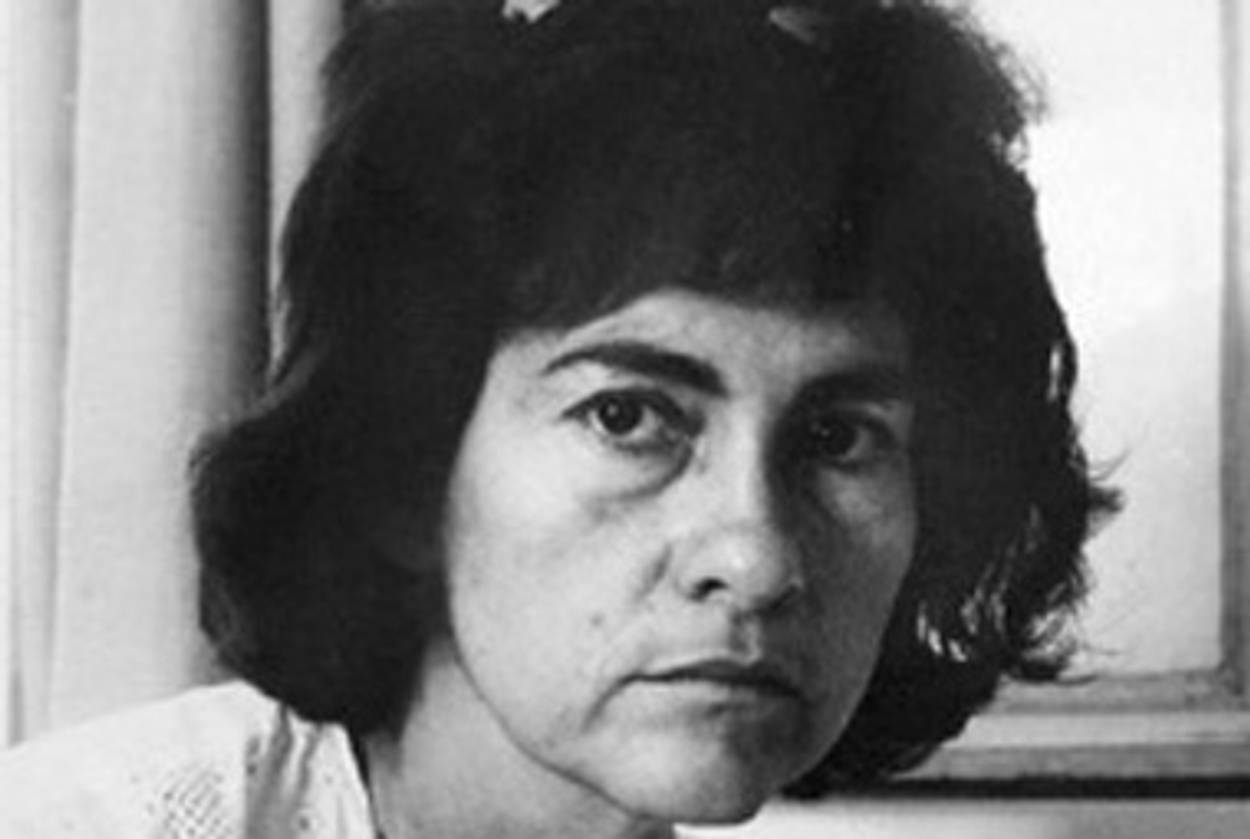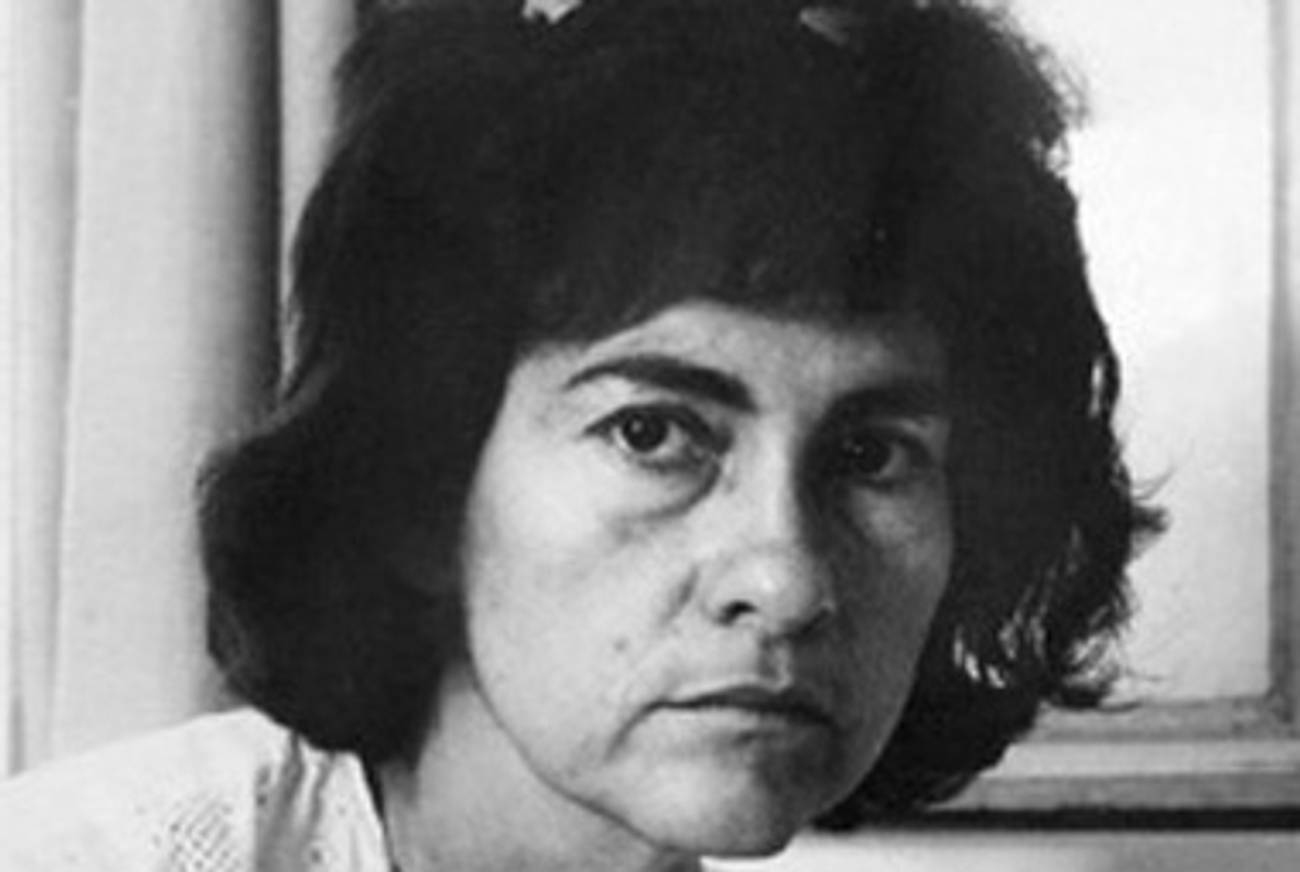Homeward Bound
How Naomi Frankel’s life and work mirrored modern Jewish history




Jewish folklore attributes a certain otherworldly aura to those who die on their birthdays, as if by entering and exiting the world on the same day one’s life acquires a hidden meaning or secret grace. Last Friday, on her 91st birthday, the Israeli author Naomi Frankel passed away. She was largely forgotten; few, if any, young Israelis bothered themselves with her old-fashioned novels, intricate works in which people and places received the same generous, observant attention. But, perhaps more than any other author, Frankel’s life story reflects the challenges and heartbreaks of the modern Jewish state.
Frankel was born in Berlin in 1918, the daughter of an affluent family of assimilated Jews. She lost her mother when she was two years old and her father, a textile manufacturer and an officer in the German army, shortly thereafter. Sensing the looming catastrophe, concerned relatives sent her to Palestine in 1933.
She arrived there, an angry and confused 15-year-old, and found solace in Hashomer Ha’tzair, the socialist youth movement, and the Palmach, the pre-army Jewish militia fighting for the nascent state’s birth. When the War of Independence broke out in 1948, Frankel, then a woman in her thirties, rushed to join in the battle. “I shot,” she reminisced to an Israeli newspaper later in life, “and I killed.”
After the war, Frankel settled down on a kibbutz, spending half of her week working in the fields and the other half writing. She had a husband, a home, and a nation she’d helped deliver, but her mind wandered back to the broad boulevards of Berlin. Her first novel, a multi-volume opus titled Saul and Johanna, was an attempt to reconstruct the world that was ravaged by Hitler, a universe of Jews unburdened by the spiritual yoke of millennia and of Germans grasping for a path back to greatness after the ravages of World War I.
Frankel traveled to Berlin, revisited her childhood streets, spoke to old friends. She was devastated to learn that even some of those who weren’t overtly anti-Semitic found solace and hope in the Nazis’ pomp and parades. It was all the insight she needed into the human psyche, and it infused her novel with a steely, if elegant, determination. By the book’s end, Germany becomes less a specific nation grounded in a particular reality and more a metaphor for Jewish history itself, a tidal wave of hatred and persecution that can only be contained by the forces of Zionism and the borders of a strong and free Israel.
When it was published in 1957, the first installment of Saul and Johanna enjoyed critical praise, and many expected Frankel to become a force in the nation’s burgeoning literary scene. She never did. For the most part, her contemporaries had little use for the tragedies of German Jewry; they needed authors like Moshe Shamir or poets like Haim Guri, chroniclers of Israel’s home-brewed bravery, mythmakers who enshrined the here and the now. No one wanted to hear about Germany. No one cared for the Diaspora.
Soon enough, then, Frankel shifted her focus, and began writing about Israel’s warriors, the brazen, bronzed men whose military antics were the stuff of legend. In a way, it was a logical step to take—having put the embers of Europe behind her, she now concerned herself with the raging fires of Israel. Impressed with her commitment to military affairs, the Israel Defense Forces offered her a position; at 41, a recent widow, she put on a uniform and began covering the army’s operations during the late 1960s and early ‘70s.
Her new job had a profound effect on Frankel. The socialist ethos of the kibbutz movement, in whose ideological glow she comforted herself since childhood, began to fade in her mind. Communal living and left-wing politics began to seem strange, misplaced, too reminiscent of the same brand of universalism to which so many German Jews subscribed before the fall. She left the kibbutz, moved to Tel Aviv, and made the army her life.
It, too, let her down. Witnessing the near-debacle of the Yom Kippur War in 1973, she became disillusioned with the state of the nation. Israelis, she wrote, were “a people gnawed by destruction and decay,” led by aging leftists who had lost sight of Zionism’s true meaning. Having witnessed one community of self-deceiving Jews en route to ruin, she refused to witness another, and sought solace in religion. Israelis, she thought, were as guilty as German Jews of abandoning Judaism in favor of more modern ideologies, an original sin for which a nation was usually punished by death.
“I think that something very difficult is happening to the Jewish people in the land of Israel,” she said in an interview in the early 1980s. “This secular state won’t be around for a long time. I don’t believe in it. I see it slowly unraveling.”
Tel Aviv, of course, was no city for anyone turning her back on secular Israeli life. Frankel left town, resigned her position in the army, and moved to Kiryat Arba, a Jewish settlement near Hebron. There, she gradually became both religious and a right-wing ideologue. In 1988, for example, after the first Palestinian intifada erupted, Frankel gave a speech stating that because Palestinian women and children participated in the hostilities against the IDF, they should be seen “not as women and children but as those who come to kill us” and must therefore be preemptively killed themselves.
That last sentence, a paraphrase of a well-known rabbinic dictum, demonstrated just how far the daughter of the enlightenment and the author who sought insight in psychological motives had traveled. From that point on, whenever Frankel wrote or spoke, she did so, most often, with the fiery passion and the loaded language of the biblical prophets.
“My spirit and my soul were set ablaze,” she wrote in one typical passage, “and the spark that burned within me was stronger than fear itself. I was awarded a pure moment that shall never again wither away. The sunlight shone bright through the fog and the heat, and it was my own rainbow, the sign of the covenant between Hebron and myself.”
More than anything, the universalist-turned-socialist-turned-Zionist craved roots, and she found them in the town where Abraham was buried. For all of its discord and contention, life in Hebron gave her what Berlin and the kibbutz and Tel Aviv never could, a sliver of sacred earth, a sense of place.
It came at a price. For the most part, the Israeli literary elite, predominantly secular, saw Frankel’s transformation as a slow descent into fanaticism and the false comforts of dogma. She was now considered a settler, not a writer, and very few bothered reading her later work. They missed much. Her last book, published in 2003, is a history of the Jewish community in Hebron, ending with the massacre of 67 Jews, in 1929, by vengeful Arab militants; researching the book, Frankel, by this point an octogenarian, interviewed survivors of the old community in Hebron and wove together a rich and artful tapestry of daily life in one of history’s most ancient Jewish towns. Subtle as it was, the book’s context was hard to escape: in Hebron, Frankel discovered a town that existed before Zionism and that, taking its strength from its adherence to the Bible and its covenants, would exist long after the secular Jewish state collapses.
But she was destined to move once again. Her request, upon her death, was to be buried back in the kibbutz, next to the long-deceased husband she had loved. Being near him mattered to her more than any of the ideologies that attracted and disappointed her in life. In dying, Naomi Frankel finally found a home.
Liel Leibovitz is a senior writer for Tablet Magazine and a host of the Unorthodox podcast.
Liel Leibovitz is editor-at-large for Tablet Magazine and a host of its weekly culture podcast Unorthodox and daily Talmud podcast Take One. He is the editor of Zionism: The Tablet Guide.